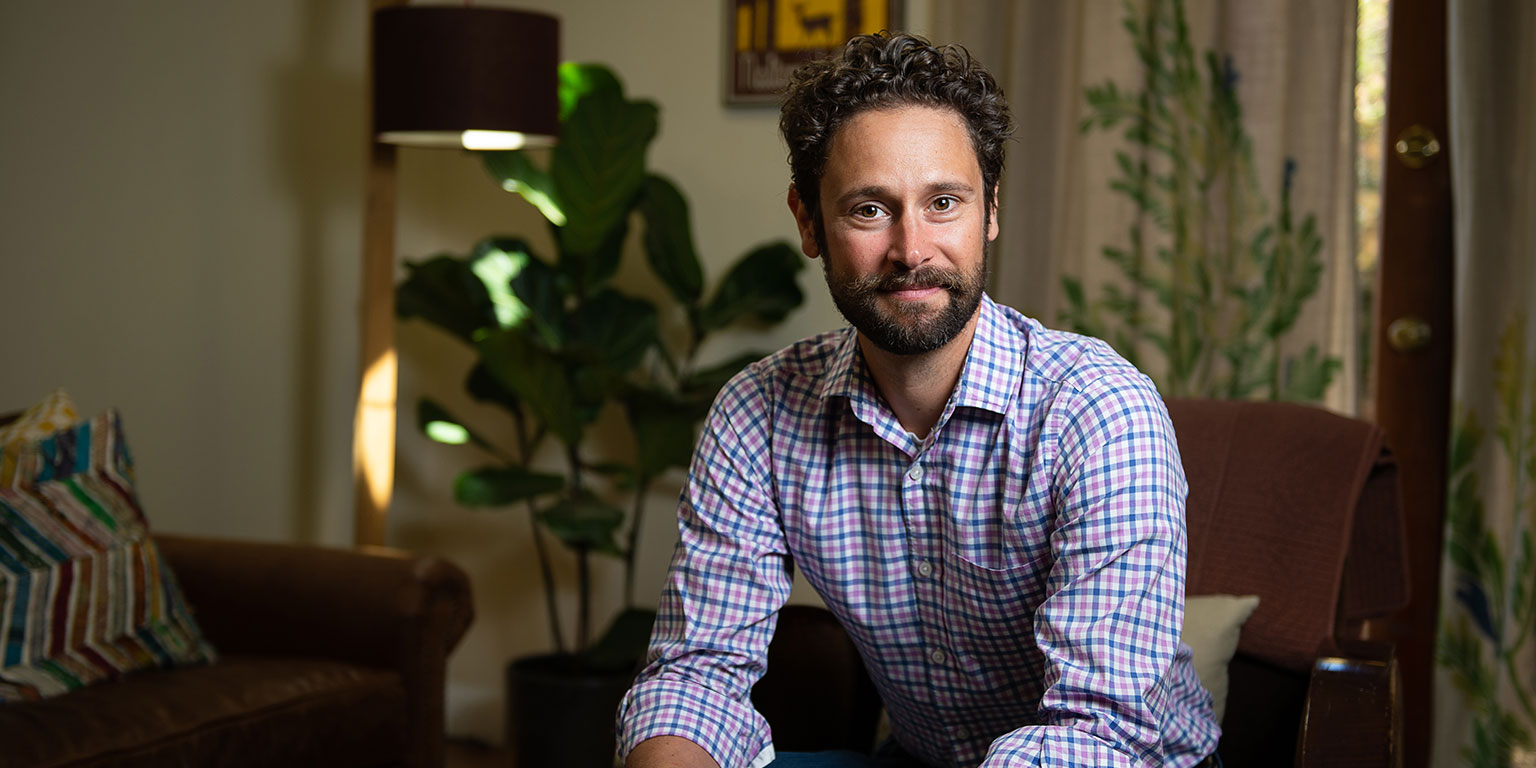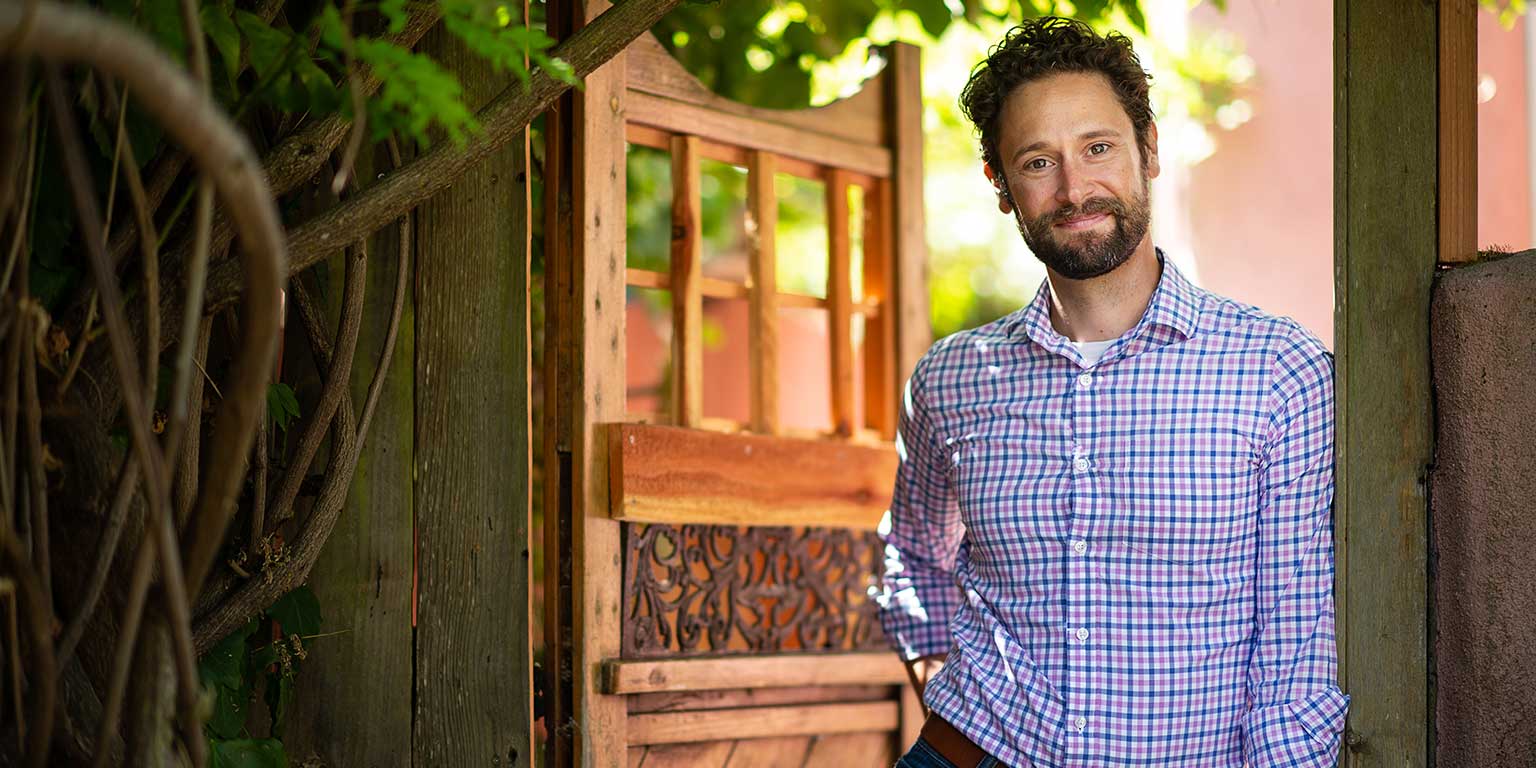By Katie Moulton | Fall 2018
Photography by Maximillian Tortoriello
“We like the scenic route,” Andy Kastner (B.A. ’02, Religious Studies, Jewish Studies) tells me. The rabbi and Renaissance man is referring to his professional and geographic journey, which has taken him and his family all over the country.
Andy is currently the director of community impact at the East Bay Jewish Federation in Berkeley, Calif., but previously he’s been a university chaplain, a philanthropic program officer, the founder of a community supported agriculture (CSA) program, and even a kosher slaughterer. These endeavors may be wide-ranging, but they all fall along intersections of Jewish teachings, community development, and food justice.
We meet for lunch at Gather, an airy, bustling restaurant in the “greenest” building in the East Bay, around the corner from the Jewish Federation’s open-layout offices. Andy, 38, has lively brown eyes and a slim athletic build like the long-distance runner he is. The all-organic menu showcases “head to tail, root to shoot” meals that “reflect the bounty of Northern California,” and though I want to discuss Andy’s work as a kosher slaughterer, we both order vegetarian options.
“It’s so much easier [in California] to live with the seasons,” Andy says. “It’s so integrated with the way we shop. In December at the market, I want my kids to see the citrus, and to anchor that sensory memory. When my kids ask if we can have blueberries in December, that’s a teachable moment.”
When I press him to clarify, asking if he and his kids eat blueberries out of season, Andy just smiles.
“We don’t, but it’s not to deprive them,” he says. “Part of my offering as a parent is to share with my kids what gives richness to life, what enhances my consciousness and compassion.” He laughs, shaking his curly hair. “Of course, when they’re on their own, they can do what they want.”
The day before, Andy, a Cleveland native, had sent his daughter to school wearing a Cavaliers hat — a bold move in the Bay Area when the Cavs are facing local heroes the Golden State Warriors in the NBA finals.
“She’s six. We’re just trying to toughen her up,” Andy says. “She only has a couple more years before she’s like, ‘Hell no, I’m not your billboard.’ I’m not a huge sports fan, but I like the energy, and Cleveland is a city that constantly gets the bad rap.”





